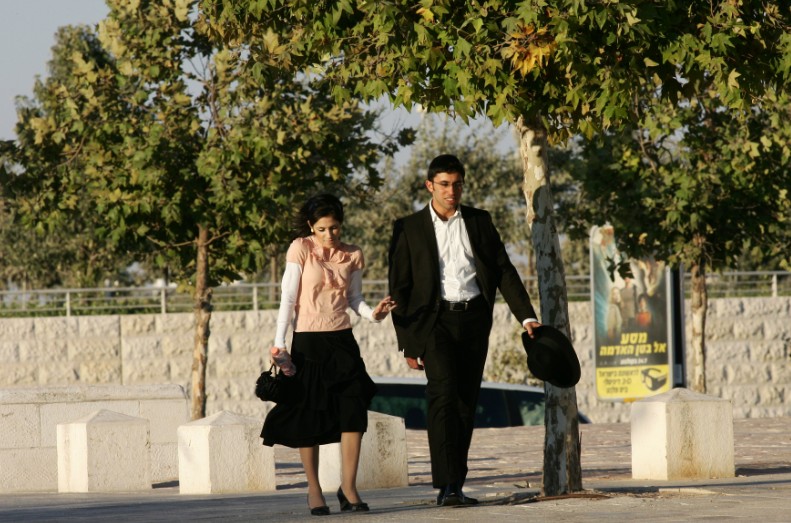Beginners Guide
Shidduch (Matchmaking) Guide: The First Meeting
A comprehensive guide on what to do (and avoid) during the first meeting, the right approach to take, and key points of focus.

Although the following guidance is written in the masculine form, it applies equally to women.
Common Mistakes Before a First Meeting
Two prevalent errors made in entering this process are as follows: Hollywood expectations. While we may not admit it, we anticipate scenarios reminiscent of movies and fairy tales — hair blowing in the wind, slow-motion sequences, cheesy music, and a ray of light emerging from the clouds to illuminate the girl. This girl, embodying all our dreams, appears, smiles, and we'll instantly know it's her. Such scenes happen only in Hollywood. In reality, you may need to absorb and grow accustomed to her appearance. Like a new song, our favorite tunes weren't always appreciated at first listen. Therefore, don't rush to judge based on initial impressions.
Hollywood expectations aren't limited to looks. We expect the girl to open her mouth and for her words to shine, fitting perfectly with the image of the 'perfect woman' we've imagined. It's delusional to believe you'll find your perfect match exactly as you envisioned because even after many years of a happy marriage, she may not fit the role entirely. Right now, she's her own person, so escape the molds of expectations and try to get to know her. Anyone preoccupied with aligning reality with imagined perfection is hardly aware of who is truly before them.

She, like all human beings, has flaws. There are flaws one cannot live with (subjective as they are, what bothers one may not bother another at all), and there are flaws one can live with — this is what needs to be assessed.
The second common mistake, even more misleading and confusing than the first is feeling that you understand or already know the other person during the meeting. This is an error. Understand that, like you, she isn't showing her complete self, but presenting a friendly and pleasant persona. Your family and friends may even attest that there's a gap between your full personality and the face you present. This can be termed a mask, not a guise, but a layer of artificiality. It's just a first meeting, inherently filled with awkwardness, apprehension, and a desire not to get hurt, all influencing reactions and the flow of conversation. The goal is to uncover a glimpse of the real personality behind the mask.
How is this done? Never attend a meeting without a fundamental guiding principle: pray sincerely before the meeting that Hashem help you ascertain whether this is the right girl for you to marry, and that the clarity comes swiftly and without harm, distress or concealment, and that the important points are revealed for a true and accurate assessment.
Assessing Potential
At the first meeting, the goal would be to check for the potential of compatibility. At this stage it is important to divert focus from ideological discussions, and see if there’s a chance for connection, flow, and attraction.
We've previously detailed how each of us harbors diverse sides, not all of which manifest equally. The way we appear and behave with our parents is unlike how we conduct ourselves with good friends, and different still with children, or with our rabbi. We may not be dealing with a split personality, but we possess many masks, each expressing different facets of our complex personality.
Discovering a person's inner characteristics can be challengin in a first meeting, but looking out for basic cues is possible. Notice if she has a bright demeanor and what sparks her interest during the conversation.
Because we all aspire to build a religious home, we may use the mask of righteousness during meetings and tend not to reveal other hidden layers. Often the other party behaves similarly, but for ba'alei teshuva, this can be problematic. By not talking much about the past — even though much of our personality was shaped when we weren't religious — it means that neither party truly knows the other.
Many couples also engage in conversations about religious ideology, making sure to thoroughly verify each other's rabbi's views, and drift into discussions about kosher certifications or desired number of children, while overlooking aspects that pertain to character traits.
When Eliezer, the servant of Abraham, checked the suitable shidduch for Isaac, he tested specifically for kindness, not faith, ideology, or fear of Heaven. Rabbi Nevenzhal (in his book "Shichot L’Rosh Hashanah," page 194), teaches from here a great principle: a correct worldview is relatively easy to acquire because it resides in the intellect, but morals — primarily rooted in the heart — are very difficult to mend! Therefore, try to notice these things, revealed between the lines, and don't decide suitability by "righteous" statements alone. In general, it is recommended to be aware of whether there’s a hint of attraction, to assess the flow, interest, and comfort in her company.
How to Approach a Meeting?
Here are a few small and helpful tips: the meeting requires full concentration. You are both interviewer and interviewee and must therefore stay focused, turn off your phone, avoid distractions, and don’t bring study books. As the saying goes, someone engaged in one mitzvah is exempt from others, and it does not convey seriousness to the other party. It's wise not to arrive overly hungry, to be mindful of the girl's feelings, inquire if she's cold or hot, if she wants to eat or drink, and if she does, be generous and offer to pay or buy her a drink (even in this, we can learn from Eliezer, servant of Abraham). Don't be overbearing, and never lie (not even a white lie). As known, a relationship relies on trust, and it would be a grave mistake to destroy that at the beginning of the relationship.
 Illustration (Photo: Kobi Gideon / Flash 90)
Illustration (Photo: Kobi Gideon / Flash 90)Do not get carried away by small miracles or wonders. We learn this as well from Eliezer, servant of Abraham, who continued to evaluate Rivka even after the water rose to greet her, not satisfied with such a miracle, as one can perform wonders and yet not be suitable or even dishonest in character. The first meeting should not be excessively long.
After the first meeting, do not rush to dismiss the person (in the next article, dealing with subsequent meetings, we will elaborate more on physical attraction and its importance. Meanwhile, during the first meeting, it’s best not to rush this; you need to get accustomed and give a chance). While it’s true that if there is real aversion from the partner or if it’s clear as day it's not a match, then it’s best to decline a second meeting, but in any other case, it’s good to give it another chance to see how the relationship could develop and grow.
Order in Chaos
The prayer after the first meeting is a very important and indispensable part of the meeting; it should seclusion. During this prayer, speak with Hashem in your language, analyze in detail what transpired during the meeting, describe your feelings and emotions at each stage. Specify the merits and flaws that need further clarification and analyze out loud the entire proceedings with an emotional perspective. Clearly, you didn’t truly get to know the girl, just as it’s clear that no one could fully know you, given the tension, etc., it therefore requires analysis and contemplation to discern the small nuances and to be aware of details without being dismissive.
Everyone reveals clues and revealing details about their quirks during meetings- some things are trivial, moments of embarrassment, and discomfort, while others are symptoms of significant and deep issues. Almost every couple entering relationship counseling claims ignorance of the other's shortcomings, while the other insists that was hinted at during the first meeting. Therefore, pay appropriate attention to each detail and be aware of things that need further clarification. At continued meetings you can deepen and explore those doubtful points further.
Enthusiasm from a first meeting is no guarantee for success. Our sages taught that a person is recognized in three things (when intoxicated, with his money and when angry), and surely we haven’t encountered these things during a first meeting. I don’t suggest lying to the girl or trying to anger her, but we can seek glimpses into those inner layers.
The time of secluded prayer does not need to conclude with a definitive conclusion, but it aids in organizing thoughts and putting order to your mind. Now you can consult, sleep on it, and continue praying to reach good and correct advice. The Talmud teaches that before making a decision, it's wise not to be on an empty stomach but rather after a good meal.
To purchase Rabbi Dan Tiomkin's books 'Makom Sheba'alei Teshuva Omdim', click here.
 עברית
עברית

